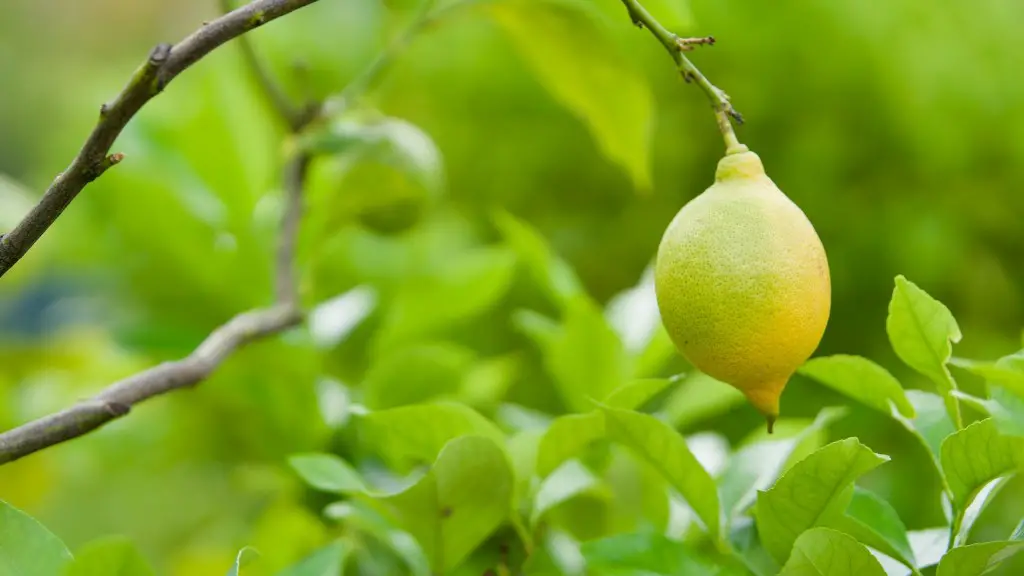When it comes to winter and the survival of a lemon tree, the answer is it depends. While some varieties of lemon trees can tolerate winter, others need protection from freezing weather and low temperatures. In order to understand which varieties are winter-hardy and which need protection, you must first understand what winter conditions they are capable of tolerating. First and foremost, winter hardiness of a lemon tree is determined by its origin. If a lemon tree originates from a tropical or subtropical climate, it will not survive cold winter conditions.
In general, lemon trees are among the plants that are affected by cold temperatures. If temperatures drop too low, then the leaves on the plants may fall off, resulting in eventual death. Lemon trees can survive temperatures down to freezing or even a bit lower, but this depends on the variety and climate of the particular tree. In addition, lemon trees need the right amount of sunlight, water, and nutrients to survive the winter. Anything less than optimal care will result in a decrease in the tree’s survival chances.
The best way to protect a lemon tree from cold winter weather is to provide it with a sheltered spot. A sheltered spot could include a patio, greenhouse, or any other covered area that can protect it from the elements. If a sheltered spot is not available, it may be necessary to wrap the lemon tree in some type of insulation for extra protection. It is also important to remember to water the tree during the winter, as proper irrigation can make a big difference in the tree’s overall health and its ability to survive.
If a lemon tree is placed outdoors in a cold climate, it is especially important to wrap it in insulation. This will help to prevent cold damage and preserve the tree’s health during the winter. Additionally, pruning the tree at the end of the season can help to reduce the risk of damage from falling temperatures. While lemon trees are generally not frost-hardy, there are some varieties that can tolerate colder temperatures and survive winter without too much protection.
Overall, the answer to the question of whether or not lemon trees can survive winter depends on the specific variety and climate. While some varieties are hearty enough to handle cold weather, others require some form of protection. If a lemon tree is provided with good care and the right amount of sunlight, water, and nutrients, its chances of surviving winter are greatly increased. With proper protection, even those varieties that are not frost-hardy can survive the winter.
Temperature
When it comes to winter hardiness of lemon trees, temperature is an important factor. Most varieties are not able to tolerate freezing temperatures, so if the temperature drops down to freezing or below for an extended period of time, then it may be too much for the tree to handle. In addition, temperatures that hover near freezing can still cause damage to the tree, making it essential to provide some kind of insulation for extra protection. With the right precautions, a lemon tree should be able to survive the winter if the temperature does not drop too low.
Sunlight
In addition to temperature, lemon trees need the right amount of sunlight, water, and nutrition in order to survive winter. If the tree is located in an area with insufficient sunlight, then it is important to supplement this with artificial lighting. Likewise, providing the right amount of water and nutrition will help the tree to remain healthy and thriving even during the colder months.
Proper Care
Proper care of a lemon tree is a key factor in its ability to survive winter. It is important to prune the tree in late summer or fall in order to reduce the risk of damage due to freezing temperatures. Additionally, adding mulch and other soil amendments can help to improve the health of the tree and ensure its ability to withstand cold weather. With these steps, a lemon tree should be able to survive the winter.
Sheltering
Sheltering a lemon tree from the cold is also important for its ability to survive the winter. If a sheltered area is not available, then providing the tree with some type of insulation can be beneficial. Wrapping the tree in burlap, plastic, or other similar material can help reduce cold damage and preserve the tree’s health during the winter months. With the right care and protection, even those trees that are not particularly winter-hardy can survive the cold.

